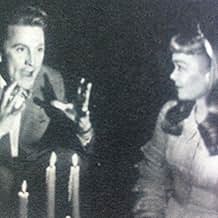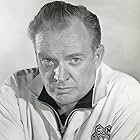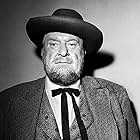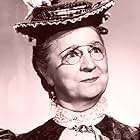IMDb RATING
7.1/10
1.3K
YOUR RATING
Merchant marine officer Tom Wingfield reminisces about his life in St. Louis where he had lived with his nagging mother Amanda and crippled shy sister Laura.Merchant marine officer Tom Wingfield reminisces about his life in St. Louis where he had lived with his nagging mother Amanda and crippled shy sister Laura.Merchant marine officer Tom Wingfield reminisces about his life in St. Louis where he had lived with his nagging mother Amanda and crippled shy sister Laura.
Philip Ahn
- Sailor
- (uncredited)
Chris Alcaide
- Eddie
- (uncredited)
Richard Bartell
- Barman
- (uncredited)
Peter Camlin
- Sailor
- (uncredited)
Perdita Chandler
- Girl in Bar
- (uncredited)
Victor Desny
- Sailor
- (uncredited)
Sarah Edwards
- Mrs. Miller
- (uncredited)
James Horne Jr.
- A Caller
- (uncredited)
Louise Lorimer
- Miss Porter
- (uncredited)
Sean McClory
- Richard
- (uncredited)
Storyline
Did you know
- TriviaIn his 1988 autobiography "The Ragman's Son," Kirk Douglas says that he thinks that the effectiveness of this movie was hampered by Gertrude Lawrence's vanity, since the filmmakers were obliged to add scenes that made her character look younger and more appealing. Douglas also says that he prefers the 1987 film version directed by Paul Newman.
- Quotes
Jim O'Connor: Ah, when you first meet Mendoza, you don't like him. But, when you get to know him, you hate him.
- ConnectionsFeatures Jezebel (1938)
Featured review
I got spoiled when I watched 1973's The Glass Menagerie; the 1950 version didn't stand a chance when I finally rented it. Katharine Hepburn's class, Sam Waterston's passion, and Joanna Miles's shyness are incomparable. Halfway through the 1950 version with Gertrude Lawrence, Arthur Kennedy, and Jane Wyman, I stopped my curses and comparisons to the taped Broadway performance. I suddenly realized that the earlier version was the original, and since it came first, it deserved fresh eyes and an open mind. With that in mind, I made sure to be less critical during the second half of the movie.
The Glass Menagerie is a Tennessee Williams play, so it's a depressing family drama about a struggling family in the South, in particular, a frustrated young man and his overbearing mother. The patriarch has deserted the family decades ago, and the young man has given up his dreams to work in a factory and take care of his mother and crippled sister.
While in the '70s, Sam Waterston played the character as a young man who sacrificed his youth for his family and doesn't want that pattern to continue for the rest of his life, Arthur Kennedy comes across as an older character, one whose youth has long since passed by. He isn't passionate and desperate to break free; he's resigned to his fate, but still unhappy about it. It's a very different interpretation from the way Sam played the part, but it's equally good. I'm not one to use the phrase "apples and oranges", but in his own way, Arthur does just as good a job as Sam.
The way Katharine Hepburn played her character, audiences can see how charming she used to be in her youthful Southern belle days. She still retains her class and poise in her old age. Gertrude Lawrence is more beaten down and shabby, fitting in with her poor surroundings. Katharine Hepburn is in a league of her own, but Gertrude Lawrence does give a good performance.
I couldn't really come up with a reason for Jane Wyman's interpretation of the sister character. She hardly seemed shy, and she seemed more mentally slow than anything, from her wide-eyed blank stare at her mother, to her sudden fits with no subtle build-up, and the variance of her limp. The one person who was hands-down, no-contest, infinitely better than the Broadway revival was Kirk Douglas, who played the gentleman caller. While he has the smallest part in the show, and he's given so many wonderful performances over the years, I hesitate to say this is one of his best performances, but it's certainly one of his most underrated ones. Usually, Kirk Douglas is either remembered as a bad boy or in a loincloth. In The Glass Menagerie, he plays the absolute antithesis of his usual bad boy roles, and he's fantastic. He aces every facet of his written character. He's supposed to be perfect and wondrous and kind, the image that comes to mind when one thinks of the bygone name "gentleman caller". A gentleman caller is polite, amiable, clean cut, confident, entertaining, and says nothing that couldn't be overheard by your parents. There isn't a hint of rebellion or seduction in Kirk Douglas's performance, and he sets the bar so high no one else can ever hope to play the gentleman caller half as well.
All in all, this version of The Glass Menagerie is pretty good, unless you've seen the 1973 version and believe that's the one and only interpretation. You might want to watch this one first, or just keep an open mind after the remake. Kirk Douglas fans will definitely want to rent this, and if you really like the story, as I do, you might enjoy watching every version you can get your hands on.
The Glass Menagerie is a Tennessee Williams play, so it's a depressing family drama about a struggling family in the South, in particular, a frustrated young man and his overbearing mother. The patriarch has deserted the family decades ago, and the young man has given up his dreams to work in a factory and take care of his mother and crippled sister.
While in the '70s, Sam Waterston played the character as a young man who sacrificed his youth for his family and doesn't want that pattern to continue for the rest of his life, Arthur Kennedy comes across as an older character, one whose youth has long since passed by. He isn't passionate and desperate to break free; he's resigned to his fate, but still unhappy about it. It's a very different interpretation from the way Sam played the part, but it's equally good. I'm not one to use the phrase "apples and oranges", but in his own way, Arthur does just as good a job as Sam.
The way Katharine Hepburn played her character, audiences can see how charming she used to be in her youthful Southern belle days. She still retains her class and poise in her old age. Gertrude Lawrence is more beaten down and shabby, fitting in with her poor surroundings. Katharine Hepburn is in a league of her own, but Gertrude Lawrence does give a good performance.
I couldn't really come up with a reason for Jane Wyman's interpretation of the sister character. She hardly seemed shy, and she seemed more mentally slow than anything, from her wide-eyed blank stare at her mother, to her sudden fits with no subtle build-up, and the variance of her limp. The one person who was hands-down, no-contest, infinitely better than the Broadway revival was Kirk Douglas, who played the gentleman caller. While he has the smallest part in the show, and he's given so many wonderful performances over the years, I hesitate to say this is one of his best performances, but it's certainly one of his most underrated ones. Usually, Kirk Douglas is either remembered as a bad boy or in a loincloth. In The Glass Menagerie, he plays the absolute antithesis of his usual bad boy roles, and he's fantastic. He aces every facet of his written character. He's supposed to be perfect and wondrous and kind, the image that comes to mind when one thinks of the bygone name "gentleman caller". A gentleman caller is polite, amiable, clean cut, confident, entertaining, and says nothing that couldn't be overheard by your parents. There isn't a hint of rebellion or seduction in Kirk Douglas's performance, and he sets the bar so high no one else can ever hope to play the gentleman caller half as well.
All in all, this version of The Glass Menagerie is pretty good, unless you've seen the 1973 version and believe that's the one and only interpretation. You might want to watch this one first, or just keep an open mind after the remake. Kirk Douglas fans will definitely want to rent this, and if you really like the story, as I do, you might enjoy watching every version you can get your hands on.
- HotToastyRag
- Jan 4, 2018
- Permalink
- How long is The Glass Menagerie?Powered by Alexa
Details
- Release date
- Country of origin
- Official site
- Language
- Also known as
- Staklena menažerija
- Filming locations
- Production company
- See more company credits at IMDbPro
Box office
- Budget
- $1,357,000 (estimated)
- Runtime1 hour 47 minutes
- Color
- Aspect ratio
- 1.37 : 1
Contribute to this page
Suggest an edit or add missing content






















